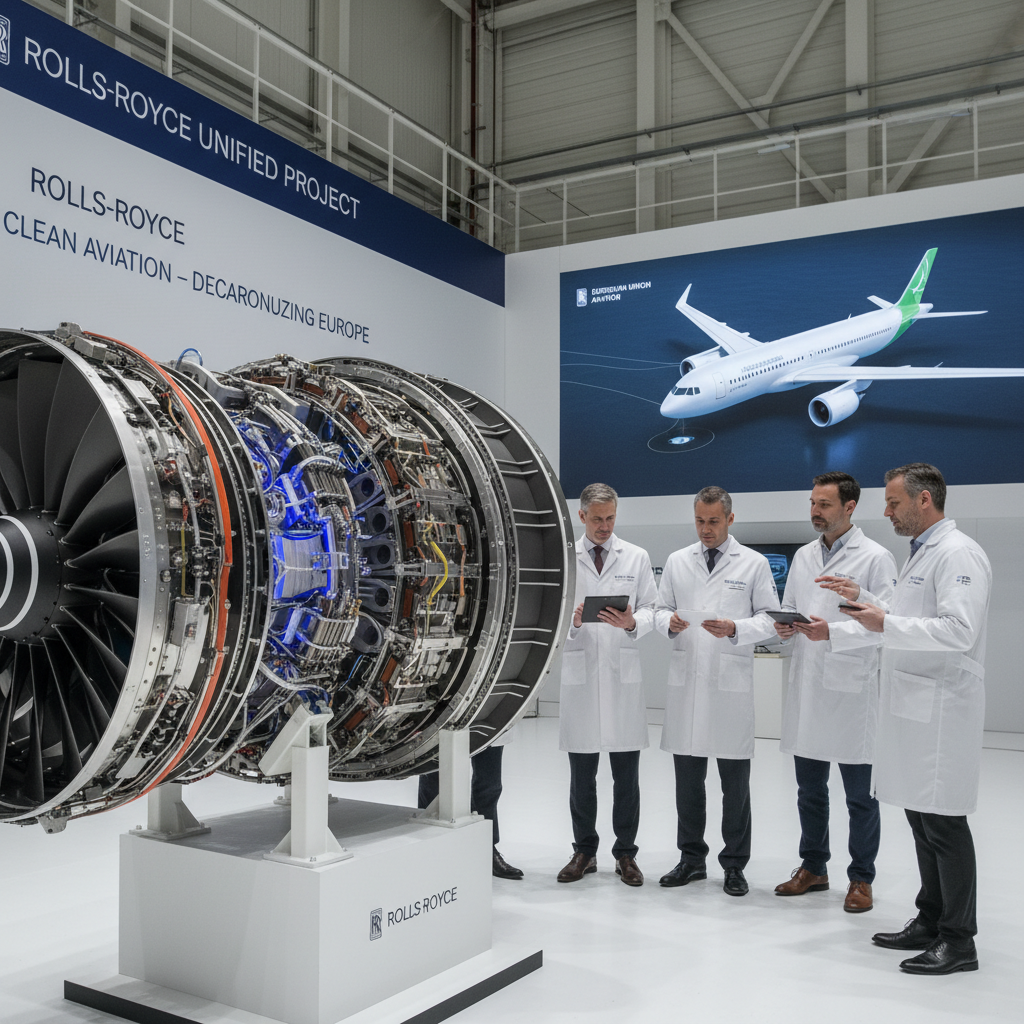Physical Address
304 North Cardinal St.
Dorchester Center, MA 02124
Physical Address
304 North Cardinal St.
Dorchester Center, MA 02124
Global aviation news tracker
Global aviation news tracker

Rolls-Royce will head the EU-backed UNIFIED project to develop ultra-efficient engines for future narrow-body jets.
On September 24, 2025, Rolls-Royce was announced as leader of the UNIFIED project under the European Union’s Clean Aviation programme. The initiative aims to push engine performance for the next generation of narrow-body aircraft, targeting lower fuel burn, reduced emissions and quieter operations — with the company’s UltraFan engine technology at its core.
The UNIFIED project brings together manufacturers, research centres and national partners across Europe to tackle several fronts of decarbonization. By focusing on thrust efficiency, combustion improvements and noise suppression, the consortium expects to deliver engine concepts that can be fitted to single-aisle airliners that carry most short- and medium-haul passengers.
Rolls-Royce’s UltraFan is cited as the technical backbone for the workstream. While specific partner names and budgets were not provided in the initial announcement, the programme forms part of the EU Clean Aviation effort to accelerate industry-wide changes in propulsion and sustainable aviation technologies.
Industry observers note this is a strategic step: narrow-body aircraft represent the largest slice of commercial operations, so improvements here multiply across global fleets. The UNIFIED project is intended to deliver technical readiness and partner alignment that can speed certification and airline adoption when the hardware and supply chain are mature.
Next steps will likely include detailed work packages, demonstration milestones and collaborative testing across member states. For passengers and operators, the payoff is clear — cleaner flights, lower operating costs and less noise for communities near busy airports.